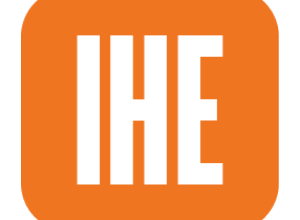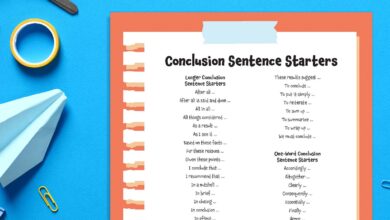Donors fund evaluations for student academic accommodations Premium Scholorships Info
Administrators and staff who work to support college students with disabilities also come across a lot of students with no formal diagnosis who realize early on that they may in fact need extra support to succeed after high school. “You see these brilliant students who have developed their own workarounds, but they get to university and the volume and pace is so intense, their workarounds no longer work. They get to a place where they think, ‘There’s something wrong with me,’” says Julie Loppacher, director of the University of Southern California’s Kortschak Center for Learning and Creativity.
Solving the problem is much more complicated than reaching out to the disabilities services office to request accommodations for a suspected condition. “Academic accommodations are commonplace tools for students with disabilities. However, these accommodations cannot be accessed without a diagnosis,” explains Loppacher, who has developed partnerships across campus and beyond to help students qualify for supports. “This is an opportunity to change students’ lives.”
What’s the need: Getting a diagnosis—or an updated diagnosis, for those who may have been tested at one point but didn’t require special education services in K-12—is typically time-consuming and costly. Besides long waiting lists for professionals to administer comprehensive evaluations, the testing and resulting report can take a half or full semester to complete. Psychoeducational assessments, which test for specific learning disabilities as well as other disorders and deficits, can cost between $2,500 and $7,000—and health insurance rarely covers any of it. “For students across the country, the cost of these tests is prohibitive and can be a significant barrier to their ability to access the much-needed accommodations,” says Loppacher.
COVID-19 pandemic shutdowns added another layer of complication, with students who might traditionally have gotten evaluated in high school, such as after struggling in Advanced Placement classes, entering college with known challenges but no diagnosis. “We have always offered a limited number of psychoeducational assessments at no charge to students, but we have seen demand for these increase steadily over the past four years,” says Loppacher, whose center has the ability to provide assessments for learning disabilities as well as screenings for autism and attention deficit hyperactivity disorder. It’s the only center at USC equipped to provide autism screenings.
Student reactions to a new diagnosis, she has seen, may be along the lines of “Finally! I knew it! I knew something was going on but just couldn’t figure it out on my own.” Others must work through their new reality, processing what it means and how it might change their future lives.
Loppacher’s hope is to eliminate instances of students who can’t get to that conclusion they need. “There are so many barriers to students with disabilities, and this one just breaks my heart,” she says. Her team has been testing more students than ever, including undergrads, graduate students, pre-professional program students and students taking just online courses. The center has averaged about four assessments per year, although more than 120 students annually have inquired about assessment services.
Her mission: “We are going to expand this and try to make it as impactful as possible.”
Partnership pursuit: Loppacher met with the USC Office of Accessibility Services—already closely connected to the Kortschak Center because most of the students it serves first work with the accessibility staff—to discuss what would be needed to get provisional accommodations for students who are in the process of getting a full psychoeducational assessment. “We came up with an abbreviated battery, still conducted clinically and overseen by a licensed psychologist,” she explains.
Students who ask about evaluations but face a waiting list (currently about a semester or more—“too long,” Loppacher says) are given options that include paying out of pocket through the Psychology Services Center on campus (which offers a sliding scale), using insurance for an assessment through the Department of Psychiatry and Behavioral Health Sciences, or seeking an external clinician.
Loppacher’s center—certified as an Association of Psychology Postdoctoral and Internship Centers site—has also worked to increase the number of assessments it can offer by expanding its in-house psychoeducational assessment training program, directed by the center’s full-time licensed clinical psychologist.
Expanding the Scope of Student Supports
In conversations on the need for additional student supports, Julie Loppacher of the University of Southern California’s Kortschak Center for Learning and Creativity says she would like to see higher ed leaders thinking beyond clinical mental health services. “I’m not saying we shouldn’t do that, but there’s a huge population out there that needs this other type of support,” she says, referring to academic accommodations and help qualifying for them.
Another key partnership has unlocked more funding for testing services. When Loppacher arrived in her role about five years ago, the center was fully funded by a gift, so she wanted to ensure she developed a meaningful relationship with USC Advancement. Conversations led to donors seeing a “menu” of options for supporting the center, including supporting testing specifically.
“At one point we had the menu on our website, but now we just have a website donate now option,” says Loppacher, who has been paired with specific advancement officers and tries to get in front of the entire team regularly. “I communicate with them monthly to ensure that our needs are always top of mind when they are out connecting with potential donors.” This spring and summer, the center has completed eight full assessments plus 12 abbreviated batteries at no charge to students. Costs for the center involve purchasing testing instruments (plus additional fees for those needed in other languages) and testing-team trainings.
Donor matches and appreciation: As advancement officers are cultivating contacts and discussing ways they could make a difference, they might share about the center’s work and have the potential donor mention being on the autism spectrum and get excited about being able to help others get tested.
“People want to make an impact [and] are interested in really changing students’ lives,” Loppacher notes. “We try to have something for everybody—little gifts, big gifts. This is a population [of students] that historically hasn’t felt they have the opportunity to advocate for themselves … Working closely with our advancement team has given us access to philanthropists [who] recognize the incredible benefit that diverse learners experience once they are able to access these assessments and subsequent diagnoses.”
The efforts have been paying off. “We are fortunate enough to have secured over $100,000 and counting for our assessment initiative,” Loppacher reports.
She has also given back to major donors—gifting collections of thank-you notes from students about the assessment experience, the impact that accessing testing has had on them or their personal disability identity development. “I was able to give them a book and say, ‘Here are the stories of the people you impacted,’” she explains.
Multipronged approach: Other funding sources are being uncovered right on campus. Through partnerships with the undergraduate and graduate student governments, Loppacher is helping to develop a funding pathway with selection criteria so that they can award students funds to access an assessment through a community provider.
She also hopes to extend the hours available for testing through her center to outside of traditional office hours, which would remove a barrier for students who are working daytime hours while in college.
“It can’t be a singular approach,” Loppacher says. “Like with so many things, this is such a large issue and there’s so much at hand … Students with disabilities have incredible gifts, contributions and insight … and their contributions can be fully actualized.”
Is your college or university offering free psychoeducational testing to students? Tell us about the effort and how it’s being funded.


